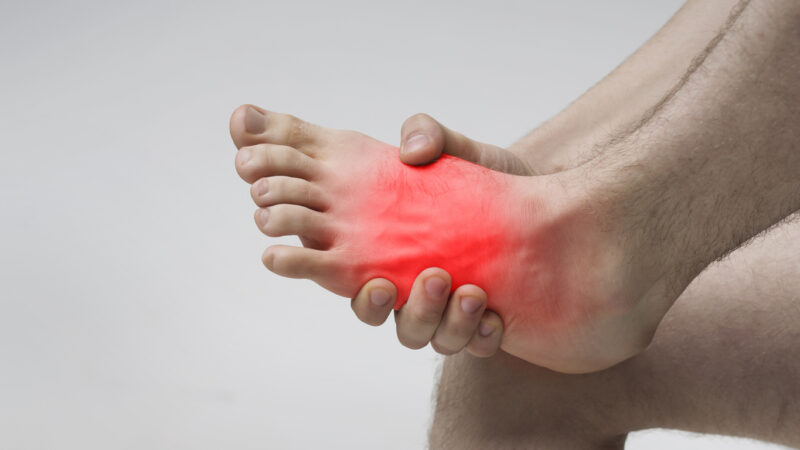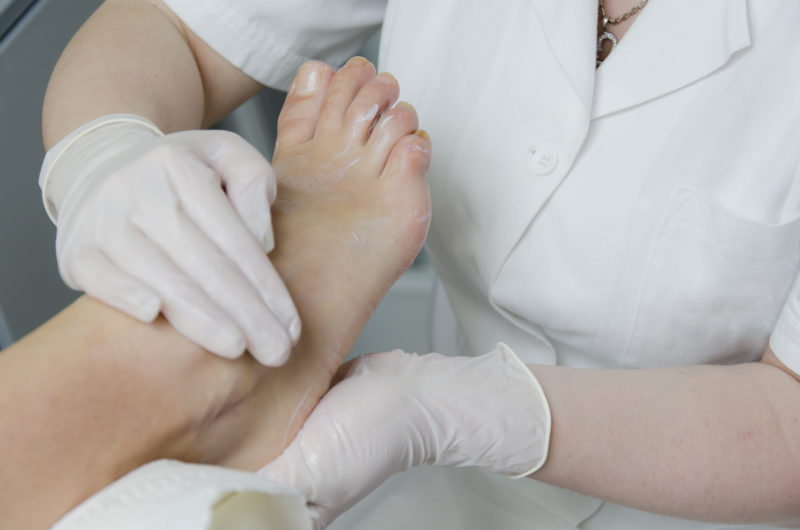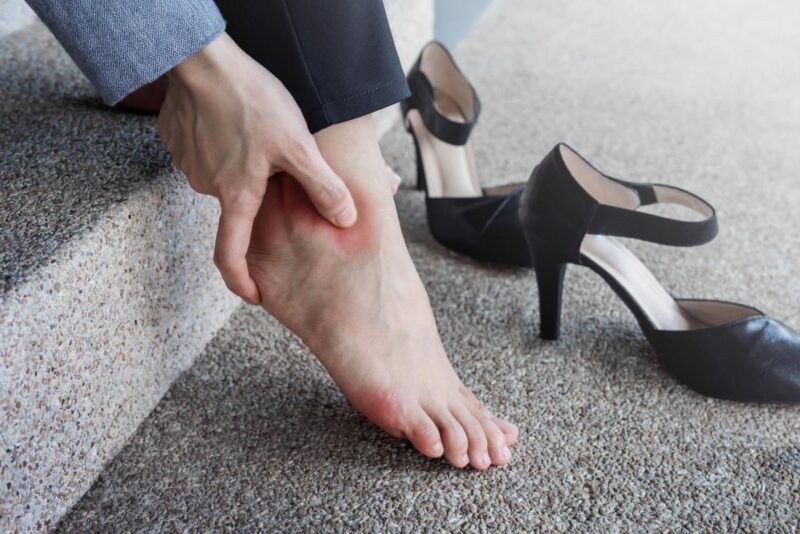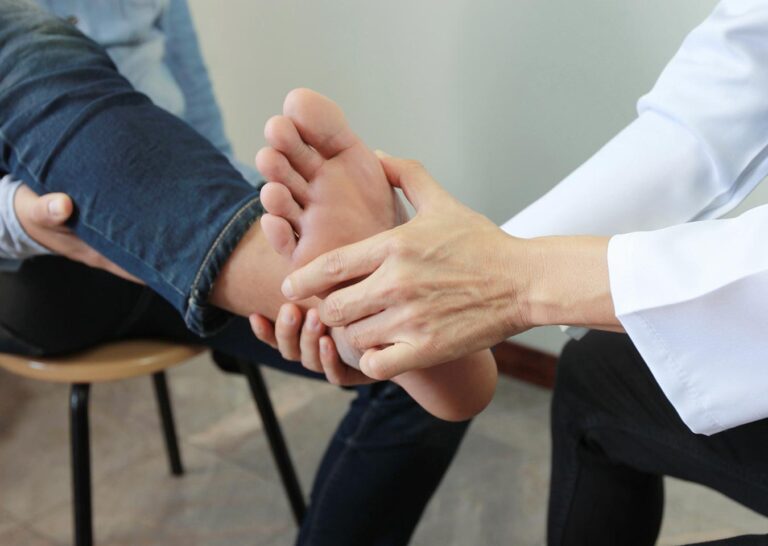Do you have foot pain that never seems to go away, or are you constantly dealing with calluses and blisters? These common foot problems can be more than just a nuisance, they can impact your overall quality of life. That’s where a chiropodist comes in.
Chiropodists, also known as podiatrists, are healthcare professionals who specialize in the diagnosis and treatment of foot and ankle conditions. If you’re experiencing any of the following signs, schedule an appointment with a chiropodist.
1. Persistent Foot Pain

One of the most obvious reasons to see a chiropodist is if you have foot pain that won’t go away. Various factors, such as a foot injury, overuse, or a structural issue like flat feet, can cause this. Foot pain can be debilitating, making walking, standing, or even sleeping difficult. If you’ve tried over-the-counter pain medication and home remedies, but your pain persists, it’s time to see a chiropodist.
They will be able to assess your foot pain, determine the underlying cause, and recommend treatment options to help alleviate your discomfort. These may include custom orthotics, physical therapy, or surgery in more serious cases.
2. Toenail Issues
Problems with your toenails can be more than just a cosmetic concern. Ingrown toenails, for example, can be extremely painful and even lead to infection if left untreated. Other toenail issues that may warrant a visit to the chiropodist include thickened nails, fungal infections, and deformities. These problems can make it difficult to wear certain types of shoes and can even affect your gait, leading to other foot and leg problems.
This expert can help diagnose and treat toenail issues and provide recommendations for maintaining healthy nails. That may include things like proper nail trimming techniques, footwear recommendations, or medication for fungal infections.
3. Diabetic Foot Care

If you have diabetes, taking extra care of your feet is essential. Diabetes can cause many foot problems, such as nerve damage and poor circulation, leading to serious complications if left unchecked. Diabetic neuropathy, for example, is a condition in which the nerves in the feet are damaged, leading to numbness, tingling, and a loss of sensation.
That can increase the risk of foot injuries and infections, as you may not feel a cut or blister until it becomes serious. Poor circulation can also lead to problems like dry, cracked skin and slow-healing wounds. A chiropodist can help you manage your diabetic foot care by providing regular checkups, wound care, and home foot care recommendations. That might include daily foot inspections, proper hygiene, and moisturizing to prevent dry skin.
4. Arthritis in the Feet
Arthritis can affect any joint, including the joints in the feet. If you have arthritis in your feet, you may experience pain, swelling, and stiffness that can make walking or standing difficult. Arthritis can be caused by a variety of factors, including age, injury, and genetics, and can affect people of all ages. While there is no cure for arthritis, there are things you can do to manage your symptoms and improve your quality of life.
An expert can provide treatments such as joint injections or custom orthotics to help alleviate your symptoms and improve your mobility. They can also recommend lifestyle changes like weight loss, exercise, and assistive devices to help you stay active and pain-free.
5. Heel Pain

Heel pain is a common problem that various factors, such as plantar fasciitis, heel spurs, or overuse, can cause. If you’re experiencing heel pain, walking, standing, or even sleeping can be difficult. Heel pain is often worse first thing in the morning or after periods of inactivity and can range from a dull ache to a sharp, stabbing sensation.
The expert in this area can help diagnose the underlying cause of your heel pain and recommend treatment options to help reduce your discomfort. These may include stretching exercises, physical therapy, or custom orthotics.
6. Foot Deformities
If you have a foot deformity such as bunions or hammertoes, it’s important to seek the advice of a chiropodist. These conditions are caused by a misalignment of the bones in the feet and can lead to pain, discomfort, and difficulty with movement. Bunions are bony bumps on the joint at the base of the big toe and can cause the toe to point inward or outward.
Hammertoes are toes that are bent or curled, often due to tight or ill-fitting shoes. Both bunions and hammertoes can lead to further problems like calluses, blisters, and even arthritis if left untreated. A chiropodist can recommend treatments to help alleviate your symptoms and improve your quality of life. These may include custom orthotics, padding, or surgery in serious cases.
7. Difficulty Walking or Standing

If you’re experiencing difficulty walking or standing for long periods of time, it’s important to see a chiropodist. This could be a sign of a foot or ankle issue that needs to be addressed. Foot and ankle problems can range from simple issues like blisters and calluses to more serious conditions like arthritis or nerve damage.
A specialist can assess your mobility and provide treatment options to help improve your quality of life. They can recommend things like custom orthotics, physical therapy, or even surgery in severe cases. In that matter, this is not something to avoid dealing with.
8. Sports Injuries

You are no stranger to the occasional sports injury if you are an athlete. But if you’re experiencing foot or ankle pain that’s not going away, it’s important to see a chiropodist. Sports injuries can range from minor sprains and strains to more serious issues like fractures and ligament tears, and if left untreated, can lead to long-term problems.
A chiropodist can provide targeted treatment for sports injuries and help you get back on the field or court as soon as possible. In addition, they can recommend things like rest, ice, and physical therapy to help you recover and advise you on proper training techniques to help prevent future injuries.
Last Words
If you’re experiencing any of the above signs, it may be time to see a chiropodist. These healthcare professionals are specially trained to diagnose and treat many foot and ankle conditions and can help you relieve pain and discomfort. So don’t let foot problems hold you back – schedule an appointment with a chiropodist today.
Whether you’re dealing with persistent foot pain, toenail issues, calluses and blisters, foot deformities, diabetic foot care, arthritis in the feet, heel pain, sports injuries, changes in foot shape or size, or difficulty walking or standing, a chiropodist has the expertise and experience to help you find solutions.

